
thataimlessdrifter
I could sleep for a thousand years.
49 posts
Latest Posts by thataimlessdrifter
my translations of Armenian Poetry 🌻
Vahan Teryan
"I love your guilty dusky eyes...", Vahan Teryan
"Two Phantoms", Vahan Teryan
"I shall come to you ...", Vahan Teryan
"To forget, to forget ...", Vahan Teryan
"Sweeter Than Living", Vahan Teryan
"In the empty words", Vahan Teryan
Paruyr Sevak
"Unexpected Storm", Paruyr Sevak
"One of Us", Paruyr Sevak
"Close your eyes", Paruyr Sevak
"I love to love...", Paruyr Sevak
"To Go Mad", Paruyr Sevak
"Your Name", Paruyr Sevak
"You don't love anew ...", Paruyr Sevak
"People are not alike...", Paruyr Sevak
"To Live...", Paruyr Sevak
Hovhannes Tumanyan
"In slumber's grasp...", Hovhannes Tumanyan
Eghishe Charenc
"Sister, it might be ...", Eghishe Charenc
"All of these flames ...", Eghishe Charenc
Hovhannes Grigoryan
"Songs of Farewell", Hovhannes Grigoryan
"Armenia", Hovhannes Grigoryan
"I'm no longer looking for you", Hovhannes Grigoryan
"An evening with aged maidens", Hovhannes Grigoryan
"Perhaps, it's spring ...", Hovhannes Grigoryan
"Don't you ever die", Hovhannes Grigoryan
"A letter that will never reach you", Hovhannes Grigoryan
Henrik Edoyan
"I did not do what was written ...", Henrik Edoyan
"I remember many of them...", Henrik Edoyan
"A biography that might as well have been mine", Henrik Edoyan
Vardan Hakobyan
"Love One Another", Vardan Hakobyan












i woke up shivering from my dream this morning (it had you in it)
@/heavensghost on tumblr / unknown / richard siken / susan orlean / cool about it by boygenius / @/annalaura_art on tiktok / @/annalaura_art on tiktok / for your own good by leah horlick / the night we met by lord huron / richard siken / trista mateer / text: I thought id know you forever.. by Olivia Ruby - art: Watchmen by Dave Gibbons et al
my favorite love language is trying, actually
Love how tumblr has its own folk stories. Yeah the God of Arepo we’ve all heard the story and we all still cry about it. Yeah that one about the woman locked up for centuries finally getting free. That one about the witch who would marry anyone who could get her house key from her cat and it’s revealed she IS the cat after the narrator befriends the cat.

Launching my first art blogs with a small comic based on the amazing words of Ursula K. Le Guin!
u ever see someone with extremely fucked up views (or actions) and think wowww if a couple of things in my life went the tiniest bit differently that would have been me
Every single odd number has an “e” in it.
Just learned about garden path sentences.
They’re basically a literary prank– the sentence starts out in such a way that you think you know where it’s going, but the way it ends completely changes the meaning while still being a complete and logical sentence. Usually it deals with double meanings, or with words that can be multiple parts of speech, like nouns and verbs or nouns and adjectives.
So we get gems like
The old man the boat. (The old people are manning the boat)
The complex houses married and single soldiers and their families. (The apartment complex is home to both married and single soldiers, plus their families)
The prime number few. (People who are excellent are few in number.)
The cotton clothing is usually made of grows in Mississipi. (The cotton that clothing is made of)
The man who hunts ducks out on weekends. (As in he ducks out of his responsibilities)
We painted the wall with cracks. (The cracked wall is the one that was pained.)
“Any form of human creativity is a process of doing it and getting better at it…[Writers] don’t usually peak in their 20s. It’s usually quite a lot later on.”
— Margaret Atwood
I have heard many men say that they want an "intelligent woman" in their life. I would encourage them to think well.
Girls and intelligent women make their own decisions, have their own desires and set boundaries. You will never be the center of her life because she revolves around them. An intelligent woman will not allow you to manipulate or blackmail her. She is responsible for her actions.
Intelligent girls doubt, analyze, debate, displease, progress. These women had a life before you appeared in their lives, and will continue to have it even when you leave their lives. Such women report, do not ask permission. They are not looking for a leader to follow, a father who solved their life, or a child to save themselves by guiding them. They do not want to follow you, nor are they willing to show the right way to others.
Intelligent girls know that living without violence is a right, not a luxury or a privilege. They express nervousness, sadness, pleasure and fear in the same way, because they know that fear does not make them look weak, nor does nervousness make them look "masculine". These two emotions, but also the others, all together, make it look humane and that's enough.
An intelligent woman is free because she has fought for her freedom. But she is not a victim, she is a survivor. Do not try to limit her, because she will know how to escape. An intelligent woman knows that her value does not lie in the physical aspect. Think twice before judging her age, height, weight or sexual behavior because this is emotional violence and she understands it.
So before you say you want an "intelligent woman" in your life, ask yourself if you are really ready to be a part of her life.
— Gabriel Garcia Marquez
The Top 5 Longreads of the Week

The rollercoaster of losing your health. Analyzing the film The Zone of Interest. An unusual con artist. Calculating love versus genetics. Recalling a dark childhood. All that—and more—in our first Top 5 of 2024!
Read all the stories here.
“how did you get into writing” girl nobody gets into writing. writing shows up one day at your door and gets into you
Categories of Plot Twists
Anagnorisis: a character learns a new piece of information about themselves or another character. “Anagnorisis, or discovery, is the protagonist's sudden recognition of their own or another character's true identity or nature. Through this technique, previously unforeseen character information is revealed.”
Flashback: “Flashback, or analepsis, a sudden, vivid reversion to a past event, surprises the reader with previously unknown information that solves a mystery, places a character in a different light, or reveals the reason for a previously inexplicable action.”
Cliffhanger: “A cliffhanger or cliffhanger ending, is a plot device in fiction which features a main character in a precarious or difficult dilemma or confronted with a shocking revelation at the end of an episode of serialized fiction.”
Unreliable Narrator: “An unreliable narrator twists the ending by revealing, almost always at the end of the narrative, that the narrator has manipulated or fabricated the preceding story, thus forcing the reader to question their prior assumptions about the text.”
Peripeteia: Peripeteia is a sudden reversal of the protagonist's fortune, whether for good or ill, that emerges naturally from the character's circumstances. Unlike the deus ex machina device, peripeteia must be logical within the frame of the story.
Deus Ex Machina: Deus ex machina is a Latin term meaning "god from the machine." It refers to an unexpected, artificial or improbable character, device or event introduced suddenly in a work of fiction to resolve a situation or untangle a plot.
Red Herring: A red herring is a false clue intended to lead investigators toward an incorrect solution. This device usually appears in detective novels and mystery fiction. The red herring is a type of misdirection, a device intended to distract the protagonist, and by extension the reader, away from the correct answer or from the site of pertinent clues or action.
False Protagonist: A false protagonist is a character presented at the start of the story as the main character, but then disposed of, usually killed.
Non-linear Narrative: A non-linear narrative works by revealing plot and character in non-chronological order. This technique requires the reader to attempt to piece together the timeline in order to fully understand the story. A twist ending can occur as the result of information that is held until the climax and which places characters or events in a different perspective.
Reverse Chronology: Reverse chronology works by revealing the plot in reverse order, i.e., from final event to initial event. Unlike chronological storylines, which progress through causes before reaching a final effect, reverse chronological storylines reveal the final effect before tracing the causes leading up to it; therefore, the initial cause represents a "twist ending".
At some point you’ve made a subconscious decision that’s saved your life without even realising
short & impactful
"Stay."
"Just go."
"I hate you."
"Because I love you."
"Don't leave me."
"Leave me alone."
"I need space."
"Don't go."
"Talk to me."
"I want only you."
"You need to move on."
"Please, speak to me."
"This will end now."
"I want to forget you."
"Hate me."
"Why?"
"Lie to me."
"I can't do this."
"Tell me."
"I'm just afraid."
"Please, leave."
"You can't leave me."
"I need you."
"Don't do this."
"Just stop."
"It's over."
"Tell me the truth."
"I can't lose you."
"We're done."
"Please."
🌼 poems (and a love letter) that helped me live through july 🌼
One Or Two Things, Mary Oliver
Kitchen Song, Laura Kasischke
The Breathing, Denise Levertov
Trapped, Charles Bukowski
Precognition, Margaret Atwood
Rain, John Burnside
Looking, Walking, Being, Denise Levertov
At Joan's, Frank O'Hara
You, Carol Ann Duffy
Time, Louise Gluck
Effort at Speech Between Two People, Muriel Rukeyser
Still, A. R. Ammons
Sonnet XL, Edna St. Vincent Millay
Sonnet XLIII, Edna St. Vincent Millay
Listen, W. S. Merwin
A Thin Line, Ryuichi Tamura (translated by Samuel Grolmes and Yumiko Tsumura)
Driveway, Richard Siken
The Sentence, Anna Akhmatova
Wanting to Die, Anne Sexton
Eating Together, Kim Addonizio
The Look, Sara Teasdale
The Starry Night, Anne Sexton
Hammond B3 Organ Cistern, Gabrielle Calvocoressi
Richard Feynman's love letter to his deceased wife, 1946
Writing References: Narratives
Writing Resources Masterlist
Balancing multiple main characters
Dramatic irony
Editing Tip: How to Speed Up or Slow Down Your Pacing
First vs Third Person narratives
Guide to showing vs telling
How To Write Saucy Betrayals
Internal Conflict and the Lie the Character Believes
Mundane scenes are important
Narrative distance
Pacing and show, don’t tell in writing
Passive vs active voice
Tips for Writing a Difficult Scene
Tips on Introducing Backstory
Using Flashbacks in Fiction
What Is Showing vs. Telling Anyway?
Writing fight scenes
Writer's Guide to Time jumps
Writing intimacy in a scene
Writing sexual tension: will they or won’t they?
Writing The Opening Scene
Random fact: They did a study on courtship and mating behavior of American alligators at the St. Augustine Alligator Farm in the early 1980's. This study revealed that, among other things, the majority of alligator sex is gay

The thing about being neurodivergent coded in a way is funny for me because I don't actually know if I'm neurodivergent or not. I even got myself diagnosed and the results I got were ambigious. I'm always wary to call myself Autistic or with ADHD because I don't want to use a label that doesn't apply to me, and I also don't want to harm or upset people who actually have a form of neurodivergence and know it.
I should probably not call myself anything for now, and check in with the person who diagnosed me to ask about the results again.

If you need us, we'll be listening to this rather heavenly playlist.

A recent cartoon for New Scientist
St. Vincent on How Her Love of Podcasts Led to Narrating Audible’s Rock History Series — and Why She Relates to Skynyrd’s Episode as Much as Bowie’s
By Chris Willman

Annie Clark, better known to most as recording artist St. Vincent, first took a step out of rock ‘n’ roll and into “voice work,” as it were, when she wrote and recorded a compelling original audiobook, “Words + Music,” for Audible in 2020. Now she’s taking a step further into the realm of pure narration as the host of a new six-episode podcast series, “History Listen: Rock,” which premiered on the Audible service in January. She didn’t write the series, which produced by Double Elvis, creators of the lauded “Disgraceland” podcast, among others. But f you’re a fan of St. Vincent’s through material like “Daddy’s Home,” there’s a good chance you’ll take to her intonations as she speaks into life some well-crafted mini-histories of rock, from the R&B of the ’40s and ’50s through folk, psychedelia, punk, metal and (the arena where she’s picked up her three Grammys) alternative rock.
Variety spoke with her about her love for the medium and some of the genres and artists covered in the new series, which can be found here.
Was doing the autobiographical audiobook a few years ago the thing that was a gateway drug into narrating something that’s not about yourself?
No. I mean, honestly, I probably listen to more podcasts than music, so it’s just a genre and a medium that I am intimately involved with and intimately familiar with. So, you know, there’s certain things I’m aware of that, if I’m listening to a podcast, I cannot abide — like a dry mouth. I stay very hydrated. You’ve gotta have that Poland Spring, just right there at the ready.
No, really, I listen to so many podcasts, and I was also a fan of “Disgraceland” and some of the other Double Elvis things — that brand, shall we say, of podcasters. And I love narrating, and I’d love to do more of it. I was excited when they asked me to do it, and I learned things too, definitely, doing the podcast, so for sure that’s a two-thumbs-up for me.
It is a medium that I’m kind of obsessed with. I mean, I just consume an insane amount of them. But not the murder ones anymore. I’m good on on female pain as entertainment for a minute. That’s stopped feeling OK, personally.
Does developing a speaking style differ from the work any singer does to find his or her own voice?
It’s a bit more like acting. The only tool you have at your disposal is the tone of your voice, is the inflection, is the cadence. So in that way, it was a discovery, a little bit, using my voice just.as a different kind of instrument. I found it really informative. I think everybody remembers the first time they heard their own voice back, on an answering machine or something, and went, “Ooh, I sound like that?” In terms of the actual narration part, I had a couple hiccups there. I was like, “Oh, no, just go a little lower.” The podcast voice is a little lower than my, natural chit-chat. It’s interesting to discover that. I was lucky enough that I was able to record it by myself in my studio, so I got to experiment and play and not worry if I messed up on some of the tongue twisters, and to make sure that the meaning of the words was never lost in my inflection.
I didn’t know if you were the kind of person who reads a lot of music biographies or just picks things up through other means.
I’m more of a person who has the kind of stories that you swap in the studio. And of course those are stories that don’t necessarily have a journalistic rigor that these do. But I definitely liked reading the Miles Davis autobiography by Quincy Troupe — I know thst sounds funny, to say that his autobiography was by Quincy Troupe. I found that very, very fascinating, and I recently read the Sammy Davis Jr. autobiography. But for the most part I kind of like to engage with it in a more organic way than necessarily reading autobiographies.
I’m not a historian. I am obviously very knowledgeable about what I know. But this is, I think, a nice overview for people who are fans of rock music, from a very casual fan to someone even more invested. Because you get the real stories and kind of the guts and the glory of the different scenes, and also so much of the roots of rock and roll. There’s so many things that it’s sort of crazy that they were even able to distill it down to what they were able to distill it down to. I think it’s a good, fun listenand overview for people who really care or are just casual listeners and just want to have a little bit more context.
Did some of the episodes appeal to you more than others? People would think, well, of course, she has a gravitation toward punk or alternative or glam, and maybe less so, say, Southern rock…
No — I mean, hey, I learned “Sweet Home Alabama” on the guitar when I was 12! I know it well. I’m well-versed in the classic rock staples.
Is there anyone that jumps out at you from the early days of rock ‘n’ roll as someone especially interesting or a kindred spirit?
Of the stories that we covered, I’d say there is no Prince and there is no Bowie without Little Richard. I mean, he was so slick, and such an incredible performer, and to be playing with gender and sexuality and all of those things at that time was just pretty staggering. You don’t have rock ‘n’ roll without Little Richard, that’s for sure.
How about the folk era?
I’m more a fan of the politics of that man-on-the-street style of songwriting than I am necessarily aching to put on an Arlo Guthrie record. But I appreciate its point in history.
There is an episode on what is described as psych-rock, and having seen your “Daddy’s Home” tour, where it feels like you mixed in some of that along with the soul-revue aspects, it seemed like you might have some affinity for those late-’60s sounds of early Pink Floyd and such.
I think harmonically, it really started to just blow wide open in the ’60s, whether it’s the Beatles or the Beach Boys, and then add a healthy dose of acid into that, and people were like, “I want to see colors that don’t exist yet,” you know? To me that music is very visual. I mean, you go, like, “This guitar’s melting, and then those drums are dripping, and then the bass is all swirling around with it…” I’m sorry, I’m going poetic with it.
Since you mentioned the Beach Boys, you just performed one of their songs at the taping for a “Grammy Salute” special (airing later in the year). How was that?
It was really sweet. Brian Wilson looks great, he really does. “You Still Believe In Me” was the song I sang, and I’ve always loved that song so much. It’s amazing to get to sing the song for the person who wrote it, to say thank you. I mean, I’m not supposing that’s some big gift. [Laughs.] “You’re welcome, Brian Wilson!” But just to honor and get to kind of do your best in front of the people who made it is very special. I did one last year when I got to sing “Court and Spark” for Joni Mitchell [at the MusiCares person of the year dinner]. It’s very moving personally.
Going back to the episodes of the podcast: You mentioned earlier that Southern rock is in your wheelhouse, or at least was part of the wheelhouse of growing up.
Yeah, it totally is. I mean, I’m a kid from Texas. I know the Skynyrd catalog. I’m a guitar player — you know what I mean? I know “Free Bird.” So of course that was just part of the canon. And Duane Allman, I always loved his playing. So I know it, yeah. To me, the sort of current Duane Allman is Derek Trucks. Jesus Christ, what a beautiful player. You see the sort of Allman to-Trucks kind of line. I’m a guitar player who doesn’t care that much about guitar, but I’m just truly just like, what a transcendental player, Derek Trucks. Such a voice. Oh man, what a stunning player.
Glam is something that people automatically assume is part of your background and what informed you. Did anything from that episode bring up any particular love of yours?
Yeah, I mean, I think I always have just thought of Mark Bolan as cool. I didn’t realize that there was such a major kind of backlash against him where the British press really kind of went after him. It’s Mark Bolan — what’s the problem? And I know he died young anyway, but it made me quite sad for Mark Bolan. As far as the Bowie glam era, obviously that is unbelievable and iconic. For me, I’m a kind of Berlin Bowie gal, if I had a gun to my head. I’m kind of a “Low” gal… or a “Station to Station” gal, shall we say.
But I mean, just the theatricality of it… it’s the age-old question of: What are you selling? Some people are selling you authenticity, and then some people are selling you a dream, selling you magic. And I’d rather be kind of in the latter camp. We’ve talked about this with “The Nowhere Inn” [her satirical film that deals with issues of authenticity]… So, I sell the magic.
Finding authenticity in showmanship is one of rock ‘and’n’ roll’s great tricks. And certainly something you’ve been able to do is write emotionally meaningful songs, presented in a way that takes you somewhere else other than basic street reality all the time.
I mean, that’s the call, to just absolutely go for the heart and go for the jugular. But with some acid dust kind of sprinkled on top, it’s more fun, you know?
Anything about punk, metal or alternative, as explored in this podcast, you would want to speak to?
Yeah, one thing from punk that I will say… You know, again, it’s not a complete history of anything. It’s really entertaining, bitesize chunks of a trajectory. But I wish we could have talked more about bands like the Slits or Siouxie and the Banshees or the Raincoats. So if anybody sees this article, also go check out the Slits, Siouxsie and the Raincoats, et cetera, et cetera, forever and ever.
Last summer you finally wrapped up several rounds of touring behind the “Daddy’s Home” album. Any quick promises you would want to make anyone for 2023?
It’s gonna be a great year. Gonna be a great year. I’m in my studio right now.
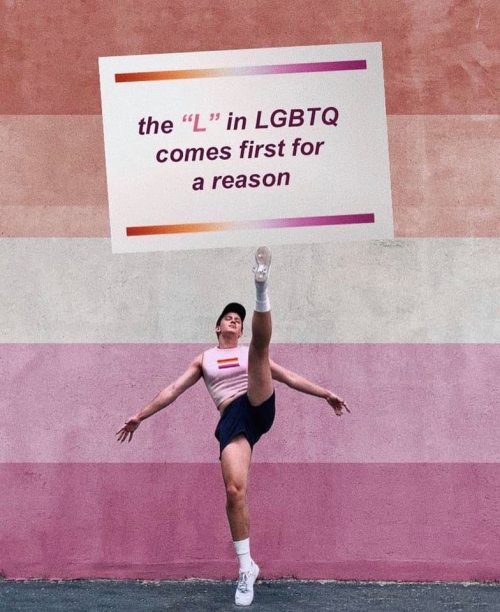




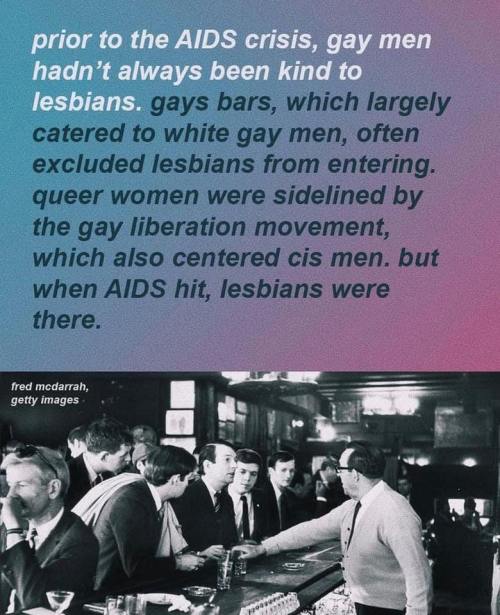




The LGBTQ community has seen controversy regarding acceptance of different groups (bisexual and transgender individuals have sometimes been marginalized by the larger community), but the term LGBT has been a positive symbol of inclusion and reflects the embrace of different identities and that we’re stronger together and need each other. While there are differences, we all face many of the same challenges from broader society.
In the 1960′s, in wider society the meaning of the word gay transitioned from ‘happy’ or ‘carefree’ to predominantly mean ‘homosexual’ as they adopted the word as was used by homosexual men, except that society also used it as an umbrella term that meant anyone who wasn’t cisgender or heterosexual. The wider queer community embraced the word ‘gay’ as a mark of pride.
The modern fight for queer rights is considered to have begun with The Stonewall Riots in 1969 and was called the Gay Liberation Movement and the Gay Rights Movement.
The acronym GLB surfaced around this time to also include Lesbian and Bisexual people who felt “gay” wasn’t inclusive of their identities.
Early in the gay rights movement, gay men were largely the ones running the show and there was a focus on men’s issues. Lesbians were unhappy that gay men dominated the leadership and ignored their needs and the feminist fight. As a result, lesbians tended to focus their attention on the Women’s Rights Movement which was happening at the same time. This dominance by gay men was seen as yet one more example of patriarchy and sexism.
In the 1970′s, sexism and homophobia existed in more virulent forms and those biases against lesbians also made it hard for them to find their voices within women’s liberation movements. Betty Friedan, the founder of the National Organization for Women (NOW), commented that lesbians were a “lavender menace” that threatened the political efficacy of the organization and of feminism and many women felt including lesbians was a detriment.
In the 80s and 90s, a huge portion of gay men were suffering from AIDS while the lesbian community was largely unaffected. Lesbians helped gay men with medical care and were a massive part of the activism surrounding the gay community and AIDS. This willingness to support gay men in their time of need sparked a closer, more supportive relationship between both groups, and the gay community became more receptive to feminist ideals and goals.
Approaching the 1990′s it was clear that GLB referred to sexual identity and wasn’t inclusive of gender identity and T should be added, especially since trans activist have long been at the forefront of the community’s fight for rights and acceptance, from Stonewall onward. Some argued that T should not be added, but many gay, lesbian and bisexual people pointed out that they also transgress established gender norms and therefore the GLB acronym should include gender identities and they pushed to include T in the acronym.
GLBT became LGBT as a way to honor the tremendous work the lesbian community did during the AIDS crisis.
Towards the end of the 1990s and into the 2000s, movements took place to add additional letters to the acronym to recognize Intersex, Asexual, Aromantic, Agender, and others. As the acronym grew to LGBTIQ, LGBTQIA, LGBTQIAA, many complained this was becoming unwieldy and started using a ‘+’ to show LGBT aren’t the only identities in the community and this became more common, whether as LGBT+ or LGBTQ+.
In the 2010′s, the process of reclaiming the word “queer” that began in the 1980′s was largely accomplished. In the 2020′s the LGBTQ+ acronym is used less often as Queer is becoming the more common term to represent the community.
Want to learn something new in 2022??
Absolute beginner adult ballet series (fabulous beginning teacher)
40 piano lessons for beginners (some of the best explanations for piano I’ve ever seen)
Excellent basic crochet video series
Basic knitting (probably the best how to knit video out there)
Pre-Free Figure Skate Levels A-D guides and practice activities (each video builds up with exercises to the actual moves!)
How to draw character faces video (very funny, surprisingly instructive?)
Another drawing character faces video
Literally my favorite art pose hack
Tutorial of how to make a whole ass Stardew Valley esque farming game in Gamemaker Studios 2??
Introduction to flying small aircrafts
French/Dutch/Fishtail braiding
Playing the guitar for beginners (well paced and excellent instructor)
Playing the violin for beginners (really good practical tips mixed in)
Color theory in digital art (not of the children’s hospital variety)
Retake classes you hated but now there’s zero stakes:
Calculus 1 (full semester class)
Learn basic statistics (free textbook)
Introduction to college physics (free textbook)
Introduction to accounting (free textbook)
Learn a language:
Ancient Greek
Latin
Spanish
German
Japanese (grammar guide) (for dummies)
French
Russian (pretty good cyrillic guide!)
Your future self is hating you for the poor decisions you’re making today.
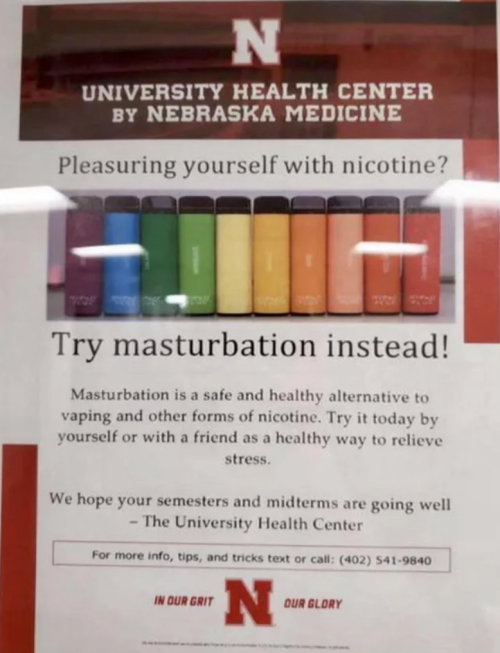
Grammar homework instructions: explain why this sentence is wrong
Me who has been passing grammar classes on pure instinct since 3rd grade: the brain worms told me so
Thank you, /r/ProgrammerHumor, I love you endlessly.
Redditors competing to make the worst volume sliders possible...


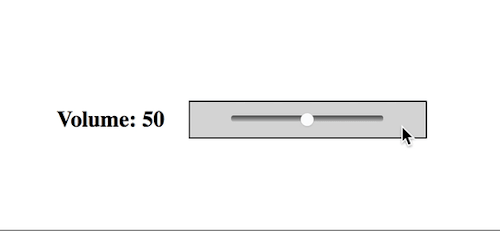

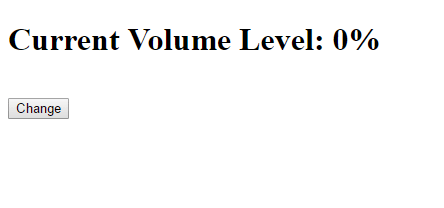



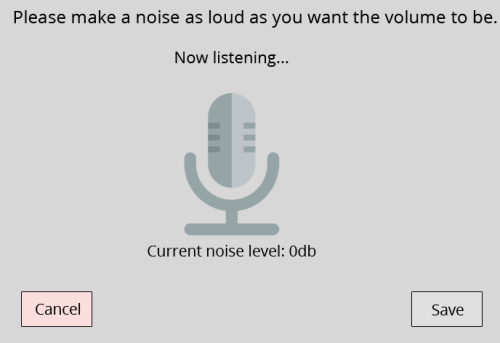


pure heroine has had me in a chokehold since 2013